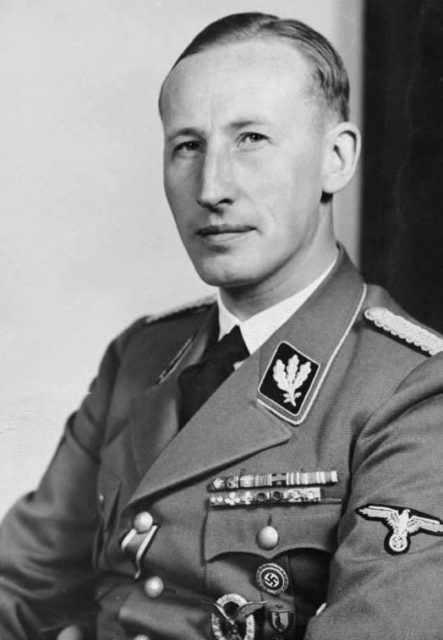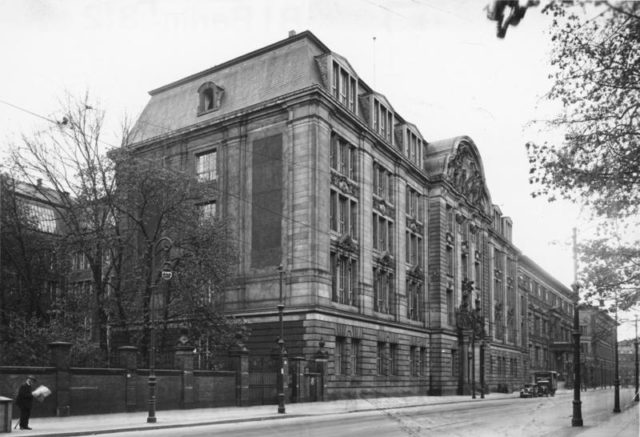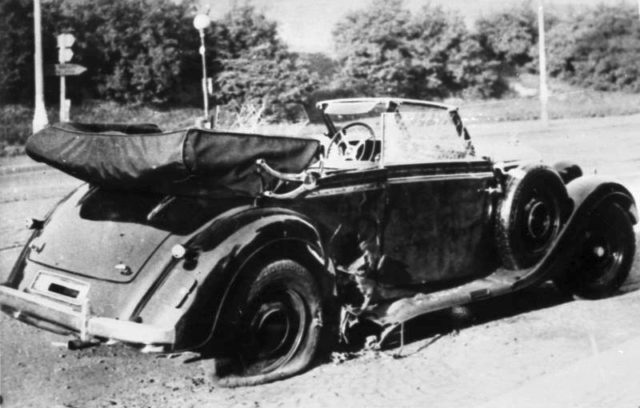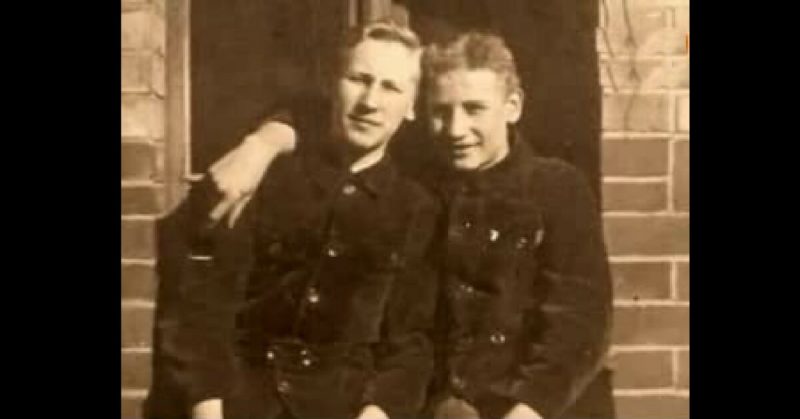In 1918 two teenage brothers posed for a photograph. The older brother has his arm protectively around the younger one. They are Heinze and Reinhard Heydrich. As the drama of the Second World War unfolded their lives followed very different ideals despite starting from the same roots.
The brothers were born in the town of Halle an der Saale in what is now southern Germany. Reinhard was the older of the two, born on March 7, 1904. Heinze was born the following year on September 29, 1905.
They were born into a wealthy and cultured household. Their father, Bruno Heydrich was a composer and opera singer. Their mother was the daughter of the head of the Royal Conservatory of Dresden. They were a staunchly Catholic family and the children grew up with a strong sense of patriotism and nationalism due to their father’s influence.
Military Career
Neither Reinhard nor Heinze chose to follow in their father’s footsteps in the world of music or the arts. Instead, they were both drawn to a military career.
Reinhard joined the Navy in 1922. His career began well. He started as a cadet and worked his way up reaching the rank of sub-lieutenant by 1928.

Unfortunately for Reinhard, his personal life led to problems and almost destroyed his future. He was notorious for his affairs and his popularity with women. In 1931 he became engaged to Lina von Osten who played a crucial role in introducing him to the Nazi party. However, it was known Reinhard had been engaged to another woman only six months before. As a result, he was dismissed from the Navy for “conduct unbecoming of an officer.”
Lina was already deeply involved in the Nazi movement. She used her influence to secure him an interview with Himmler for a position with Germany’s new intelligence service. Reinhard made such an impression on Himmler he was offered the post immediately and his military career was back on track.
Meanwhile, younger brother Heinze was pursuing his career as a military journalist. His work, which he would continue for the rest of his life was focused on the production of a military newspaper Die Panzerfaust. Like his brother, Heinze was an active supporter of nationalism although he did not know the direction in which the Nazi party was heading. Unlike his brother, he would never become a member of that elite inner circle.

Throughout the 1930s Reinhard’s career prospered as he rose to become head of the German Secret Service. He was now a top ranking official and a close ally of Himmler. When Hitler came to power, his success continued.
By September 1941, Reinhard had been promoted to become Deputy Reich Protector of Bohemia. It had been a part of Czechoslovakia that Germany had taken over in 1939. He continued the Nazi’s brutal policies of imprisoning and executing anyone who spoke out against them. That was how he earned the nickname the Butcher of Prague.
Assassination

On May 27, 1942, Reinhard was traveling to Berlin for a meeting with Hitler. On the Prague -Dresden road the car slowed down at a sharp bend. Unknown to Reinhard and his driver two men were waiting for them. These men were top agents of the Czech government in exile, in the UK. They had been trained in London and sent back to Czechoslovakia. Their mission was to assassinate the Butcher of Prague.
The first attempt with a machine gun failed to hit its target. A bomb was then thrown into the car as Reinhard tried to escape. The resulting explosion injured Reinhard and one of the agents who had carried out the attack. Despite his injuries, Reinhard leaped from the car and gave chase before collapsing on the road. He was bleeding profusely and had suffered internal injuries which led to his death a week later.
The Truth Comes Out
As might be expected the death of his brother had a profound effect on Heinze. However, Reinhard’s death influenced him in a way no-one would have expected or realized at the time.
The day before the funeral Heinze was given charge of his brother’s papers which was standard procedure. As well as his personal papers the box contained information about the Nazi’s plans including what became known as the Final Solution. Although Heinze had supported Hitler and the Nazi government, he had previously had no idea that Hitler intended to exterminate the Jewish people. While Heinze supported Nationalism, he would not support genocide.
Heinze responded initially to what he had found by burning the papers. Then he began to look for a way to help the situation. There was, of course, no point in speaking out. Instead, he used his position to help Jewish families escape before the Final Solution was put into action.
Heinze was still working with the newspaper Die Panzerfaust which gave him access to paper and printing. He was a well-established member of the party and the brother of a deceased high-ranking officer, so his activities were not closely monitored. He used the press to forge official looking passports and travel permits that helped many Jewish families escape. He continued his secret work until 1944.
Then he was informed there was going to be an inspection of the newspaper. The reason for this had nothing to do with Heinz’s forging activities; it was because of paper shortages. Heinze however panicked. He believed he had been found out. Afraid of being caught and the consequences for his family, Heinze shot himself on November 19, 1944.
Within the space of just over two years, both brothers met violent deaths in dramatic circumstances. Both are remembered for different reasons: Reinhard for his brutality as a key figure in the Nazi regime, and Heinze as someone who took great risks to try to stop the Nazi’s ultimate aim.
